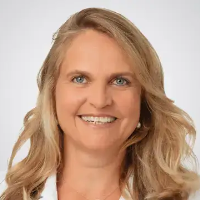Ankylosing Spondylitis in Children: Diagnostic in Heidelberg - Germany
Treatment prices are regulated by national law of the corresponding countries, but can also include additional hospital coefficients. In order to receive the individual cost calculation, please send us the request and medical records.

Department of General Pediatrics, Pediatric Neurology, Metabolic Disorders, Gastroenterology and Nephrology
The Department of General Pediatrics, Pediatric Neurology, Metabolic Disorders, Gastroenterology and Nephrology offers the full range of services in these medical fields. The department has an excellent infrastructure and modern technical equipment that allows for the timely detection of the smallest violations in the children's body and their effective elimination. The highly qualified interdisciplinary team of doctors takes care of the health of young patients. It provides not only first-class treatment, but also a friendly, attentive attitude towards each child.






Department of Adult and Pediatric Rheumatology
The Department of Adult and Pediatric Rheumatology provides the full range of diagnostic and therapeutic services in its area of competence. The department admits patients of all ages, from young children to the elderly. The department's medical team focuses on patients with rheumatoid arthritis, ankylosing spondylitis, collagenosis, vasculitis, gout, sarcoidosis, autoinflammatory syndromes, and amyloidosis. In the area of pediatric rheumatology, a major interest is the management of chronic and acute inflammatory joint diseases, with a particular focus on all forms of juvenile idiopathic arthritis. The department has an in-house laboratory to perform the necessary tests for a suspected rheumatic disease and rooms with state-of-the-art equipment for ultrasound examinations. Patients can also undergo imaging tests (X-ray, CT, and MRI scans) and radioisotope diagnostics (skeletal scintigraphy and PET/CT) at partner clinics. A treatment regimen is always selected on an individual basis after careful consideration of the diagnostic results. The therapeutic process combines the latest generation of medications, therapeutic exercises, physical therapy, occupational therapy, and other treatment options. The goal of the department's specialists is to relieve pain, prevent the progression of rheumatic pathology, and improve the patient's quality of life.


